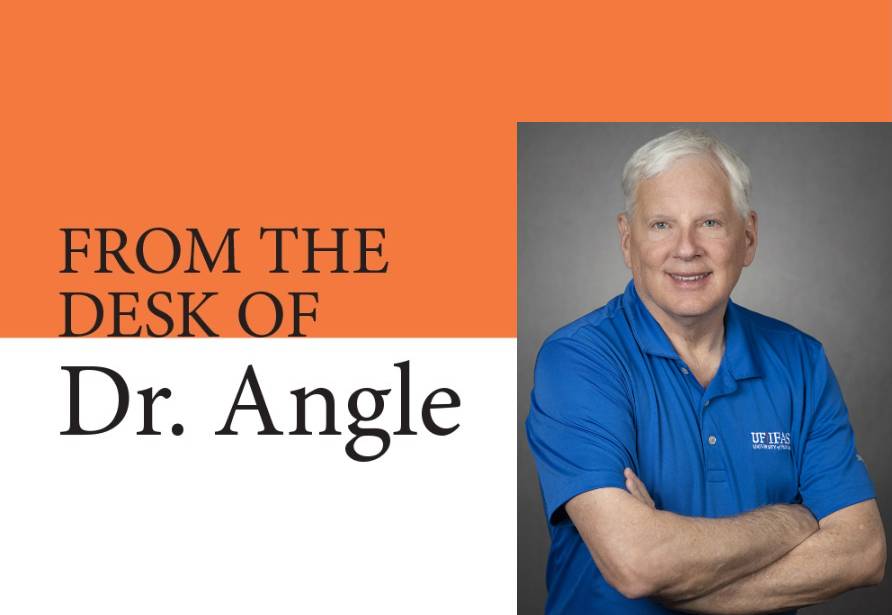By J. Scott Angle
@IFAS_VP
UF/IFAS continues an all-hands-on-deck/solutions-now response to HLB to accelerate our science to the speed of need.
This preceded my arrival, but since I became the leader of UF/IFAS two years ago my message to our researchers has been to focus first on what can benefit growers right now.
The topics of much of our research are often driven by funding source. But when we have the opportunity to explore, we seek advice from growers, discuss what we’re seeing in the field and identify what will make the most difference in the short term.
It’s allowed us to come at HLB from multiple angles—53 angles, in fact. That’s how many HLB-related research projects we’ve got going in four major areas:
- Phloem biology: tree response to infection
- Therapeutics: near-term products that can be cost-effective in controlling HLB bacterium
- Maintaining infected trees: Keeping groves productive during the search for a long-term solution
- Nutrition: Fertilizing for tree health
Number 4 is about to get a boost, thanks to those in the industry who identified the problem of outdated nutrient recommendations. I heard you loud and clear. Current guidelines are based on pre-HLB healthy trees and may no longer be valid.
Thanks go to Sen. Ben Albritton for securing funding to get started on the answers. The legislation will support best management practices research on nitrogen and phosphorus rates for citrus and other crops. This was my highest priority in the 2022 legislative session.
Expected outcomes of citrus BMP studies include:
- Updated guidelines for fertilization and BMPs
- Revision of “Florida Citrus Production Guide” and “Nutrition of Florida Citrus Trees” publications
- Information on the economic feasibility of various fertilizer rates and sources
Of course, UF/IFAS isn’t doing this alone. We have valuable industry partners. I appreciate Rick Dantzler’s management of one of UF/IFAS’s direct support organizations, the Citrus Research and Development Foundation. 2022 Citrus Achievement Award winner Kristen Carlson played a key role as founding executive director of the Citrus Research and Field Trial (CRAFT) program, and Tamara Wood has picked up where Carlson left off.
Matt Joyner is managing to do the impossible—filling the shoes of recently retired Florida Citrus Mutual CEO and Citrus Hall of Famer Mike Sparks. Shannon Shepp continues to relentlessly promote citrus and secure markets for the state’s growers.
I also declared it a priority to fill what some of you might consider “the Bill Castle position,” an evaluator who can assess the varieties coming out of our citrus breeding program. John Chater started in January.
You have my pledge to continue listening and answering your questions as best I can. You can reach me at jangle@ufl.edu. Or you can find me at the many industry events I attend. In June, I delivered a keynote speech at the Florida Citrus Industry conference, and next month I’ll be in Fort Myers for the Citrus Expo.
I’m planning for a long future for Florida citrus. That starts with doing as much as we can to give you tools you can use right now.
- Scott Angle is the University of Florida’s Senior Vice President for Agriculture and Natural Resources and leader of the UF Institute of Food and Agricultural Sciences (UF/IFAS).

